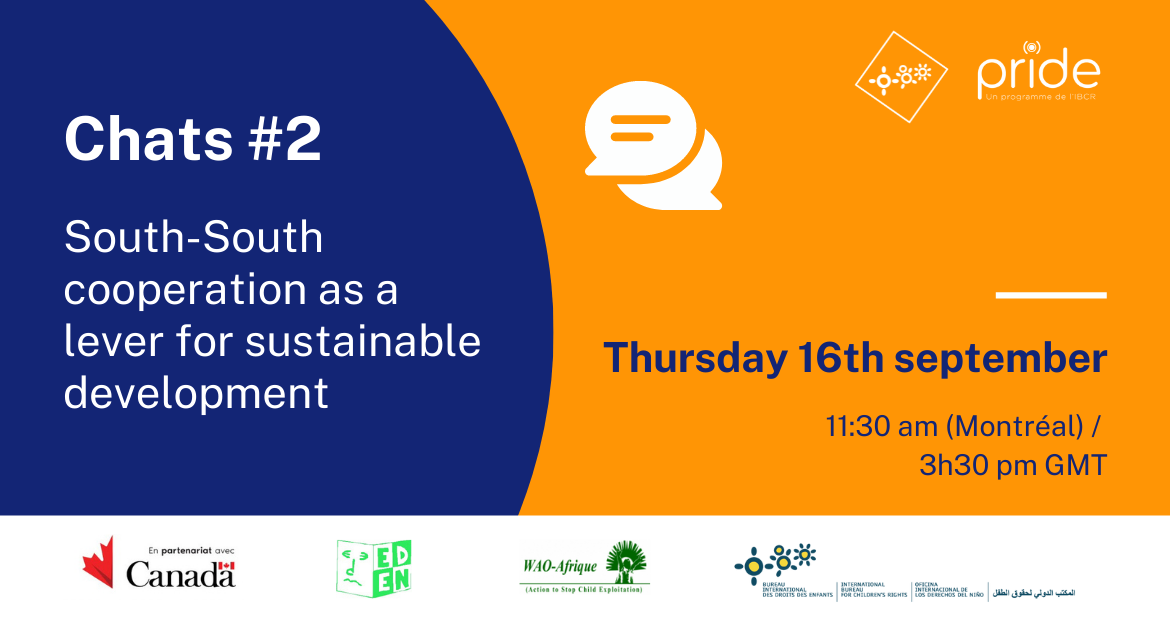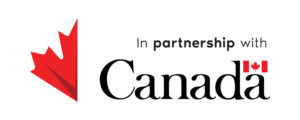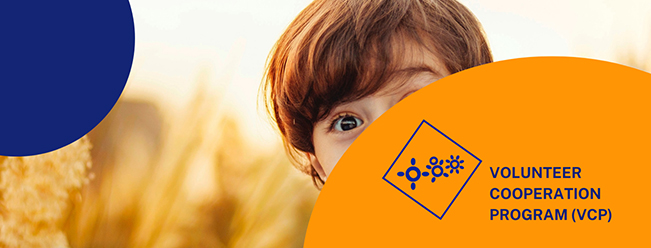
On last 16th september, the Bureau organised the second session of its « Chats », the theme of this session was South-South volunteer cooperation (or international volunteering). This has been done on a round table with partners and volunteers of our PRIDE volunteer cooperation project, from Senegal, Togo and Morocco.
Since the beginning of our PRIDE project in 2020, more than ten volunteers have already been deployed in our partner countries. Which is a major change compared to previous years, due to the sanitary context and travel restrictions to and from Canada, the majority of them are “South-South” volunteers. One year later, we took the opportunity to take stock of this different form of international volunteering and its importance in international development at the dawn of a new post-COVID-19 era.
What is South-South volunteering?
A South-South volunteer is a person with the nationality of one of our 11 partner countries who goes to work in one of the 10 other countries. This type of cooperation is complementary to traditional volunteering, in which the people deployed are Canadian.
As in traditional volunteering, South-South volunteers are mandated to support and strengthen partner organizations and institutions to enable them to go further in their action. Beyond this support, their work strengthens collaboration and coordination between countries, often within the same region, and fosters an exchange of good practices to advance the respect of children’s rights, girls’ empowerment and gender equality at the regional level, in the face of sometimes similar challenges.
After a brief introduction of the panelists and their respective organizations, the roundtable discussion followed. Several issues were raised, including the complementarity of South-South and North-South volunteerism, which allows to consolidate efforts and go further by combining different points of view and skills, generating dialogue and benefiting from the experience of volunteers from countries geographically close and facing sometimes similar child protection issues. Such an exchange promotes the construction of more protective environments that respect children’s rights at the regional level. The panelists also mentioned the value of expertise that is geographically and often culturally close to the needs of partners, and the rapid adaptability of South-South volunteers, for whom the culture shock upon arrival in the host country is often less. The session ended with an exchange between the audience and the panelists through a question and answer session.
Panelists present:
- Lara Pocock, Regional Manager-North Africa and Madagascar, IBCR
- Flora Ouedraogo, Volunteer Advisor in Organizational Management, Fondation Amane pour la Protection de l’Enfance (FAPE), Morocco
- Cléophas Mally, Director General of WAO-AFRIQUE, Lomé, Togo
- Massamba Mbaye, Director of the Socio-Educational Center EDEN, Dakar, Senegal
- Joël Yelouassi, Mobilization and Communications Advisor for the Kekeli Center in Togo.
The Chats
Open to the public, The Chats are meant to be moments of exchange between invited specialists and the public depending on the theme of the day, and aim to better understand current issues related to the rights of the child in the world. They take place on a regular basis, online or in person if the context allows it. Stay tuned for upcoming events by subscribing to our newsletter!
TO SEE THE CONFERENCE AGAIN:

Voluntary cooperation programme funded by Global Affairs Canada.



